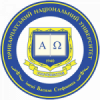Development of Communicative Competence of Future Special Education Teachers
DOI:
https://doi.org/10.15330/jpnu.10.1.87-98Keywords:
communicative competence, language competence, speech competence, special education, teacher training, inclusive educational environmentAbstract
The article highlights the peculiarities of the development of communicative competence of future teachers of special education in the context of their professional training. It is noted that communicative competence is a mandatory component of a teacher's professional skills, a clue to efficient interaction with students, and effective educational activities. Its structure includes language, speech and communicative competence. It has been proven that the key to the active and effective development of the communicative competence of future special education teachers, including speech therapists and correctional teachers, is the active use of effective methods and techniques aimed at forming knowledge of language norms and rules, rhetorical culture, speech and communication skills in various situations. Such knowledge, abilities and skills are formed in the process of studying the courses "Academic Rhetoric" and "Foreign language for professional purposes" while listening to and analyzing speeches, conversations, discussions and interviews with specialists; performing role-playing games and analysis of communicative situations; practicing the storytelling method; expressive reading and recitation of works; analysis and texts editing; preparation and delivery of speeches; development of methodological models, selection and creation of exercises and tasks for the formation of students’ coherent, correct, logical, expedient, expressive, figurative speech skills.
As a result of the empirical study, it was confirmed that the method based on the step-by-step development of communicative competence of future teachers is effective. In particular, it is about studying language material and enriching the active dictionary with professional vocabulary; improvement of monologic and dialogic speech, oral and written comprehension skills; mastering the norms of speech culture; active communicative activity and interaction in different situations with different target groups - students, parents of students, and colleagues.







